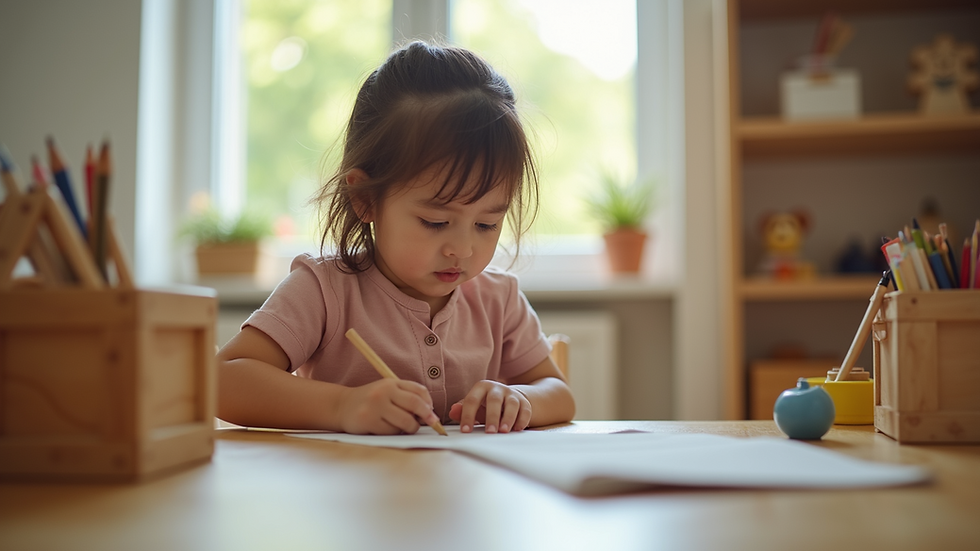Why is Practical Life learning important in Montessori education?
- Victoria Martinez & Tascha Victor
- Nov 11, 2020
- 2 min read
Aleyska, a 4-year-old new student to SMC, had never been in school or an environment similar to it. Her parents found Sunset Montessori Community out of luck. They were interested in immersing their daughter, who only spoke Spanish, into preschool. But unfortunately, other schools would not accept her due to the language barrier.
When Aleyshka began coming to SMC, she could not speak or understand English. But, as we know, and while it sounds very cliché, children are like sponges, and they absorb everything! By the end of her first month and being around children who spoke in English, she understands the language and can now communicate.
Practical Life learning in the Montessori classroom played a significant part in her picking up English.
Why is it important? Practical Life learning develops motor control and coordination, independence, concentration, and a sense of responsibility. Practical life exercises cover two main areas of development: self and care of the environment.
Washing clothes is one of the favorite Practical Life jobs for children. In Montessori, everything has a direct purpose, indirect purpose, and a point of interest.
Direct purpose: Wash the piece of clothing
Indirect purpose: Hand-eye coordination, concentration, fine motor skills, sequences, care of self, and independence
Sequences:
Put on the apron.
Bring the washing board to the sink.
Bring the bin for washing clothes which has a bar of soap, the clothes.
Set the bin on the floor, place the soap next to the faucet.
Turn on the faucet and wet the clothes on the washing board.
Scrub the soap on the clothes.
Rinse and repeat.
Ring out the water and hang the clothes.
Put the washing board and the soap back in the bin
Put the bin back to where it belongs in the Practical Life section
Take the apron off, roll it up, and put it away in the bin.
All these steps make Practical Life learning so crucial for children. The procedure is always consistent and the same. They can choose this activity as many times as they want, and they do because kids love water, which is the other part of Practical Life, the point of interest.
There are so many activities for Practical Life learning that parents can practice at home, including:
Pouring, spooning, threading, zipping, buttoning, tying shoes, cutting bananas, watering the plants, dusting… and so on.
These activities give children a sense of independence and responsibility. They love to help out. This is an excellent way of making them part of home activities and reinforcing all the concepts that go along with Practical Life learning's indirect purpose.




Comments